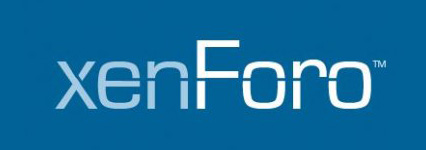
Like many people my age I started playing video games at a young age. I remember my first computer being an MSX, which had a cassette tape drive and a slot for a game cartridge of which a friend of mine had 1. These were all simple game compared to today’s standards. Slowly the computers got better and games got more complex and better looking (not sure if they also became better games) and I of course followed that trend. NES 8bit (The Legend of Zelda), SEGA Megadrive (Sonic the Hedgehog) at a friends place, 386 PC (Dune), 486 PC (Command & Conquer – Red Alert), Pentium 4 (Need for Speed) with nice graphics, Core2Duo (The Elder Scrolls – Oblivion) with even better graphics up until the Quad-core with about the best graphics you can think of right now (Watchdogs) to name just a few of the computers and just a fraction of the games. A lot of people will either have taken about the same path or have taken the console path (PlayStation or Xbox).
During the last decade or so, playing video games has been in the news for a lot of bad things. People got addicted to it, people got violent from it and people let their kids die as they forgot to feed them because of video games. And of course there are bad examples out there but I think that in 99% of the time nothing bad happens and people just enjoy themselves as an older generation did when reading books or watching television.
There are however also a lot of good things that can come from gaming. People meeting each other in a video game and eventually getting married and having kids to people winning some kind of video game championship and winning lots of money (yes that happens, millions can be won). There are of course also games out there that will teach you new skills. MineCraft is one that comes to mind, teaching you how to build structures and entire worlds using just cubes (a bit like Lego).
What did I learn from video games?
First of all I think that the skill I have in speaking, reading and writing in English is in a big way because of video games. Today’s games are online games where you play and interact with people from all across the planet and in most cases the language spoken (or written) is English.
Second is something that not all gamers get to learn from their games and that’s the use of different kinds of software. After playing a game called Entropia Universe for years I got mixed up in a community driven website where people discussed and collected information about that game, named Entropia Planets. First I was just one of the many, but after a while I started to become more active in collecting and storing data in their wiki (like wikipedia) and not long after, I was asked to become a staff member so I could do more to help out. Being part of the staff meant that I was able to take part in activities like re-designing the website and community management but also in the continued development of the wiki, with new software and added functionality and features. Later I was asked to become an official co-owner of the website, together with 3 other people, which I did. This in some parts caused yet again some interesting changes.
Website/community management
There were a few changes over time, one of which was a conversion from old forum software to new xenForo software. The conversion itself was done by the website administrator, but things like logo design and various graphics work was something I took part in. Later, when the 3 other people became co-owner we again decided to change the design and logo. This time most design was with a standard template, but some minor changed were done and a new logo was created, with the 4 owners. Learning a lot of Adobe Illustrator and PhotoShop in the process.

Other then the design of it all there is also the management of it. Meaning managing the users and making sure they follow rules (and that there actually are rules). But also taking care of forum structure and even copyright stuff. “Can we use the image I found on the internet or can’t we?”, “do we allow people to use stuff we created on our website and who owns the info other people put on our forum”. This taught me a little about the legal part of the web and that, as some people might think, not everything is allowed.

Search Engine Optimization (SEO)
This basically mean thinking about how search engines (called Google from now on) find you on the web. The way Google does this is something they keep a secret, but there are some basic rules that seem to make you go up in the search results and a few that make you go down. Understanding what you need to do is something I learned in part from the website/forum I own, but also from my own website and this blog. The basics are simple, find words you want Google to find you on and incorporate those in your website, but also in tags, page names, alternate text for images and so on. There are also ‘rules’ for length of titles, word count of articles and names of paragraphs. Being easier to find is also part of the reason why I did this article in English, so that people searching for any of the terms I used will easier find this article and the audience is larger then when I would have done the article in Dutch. There are also penalties for using the wrong methods for getting your page up in the results, methods that used to work years ago, but now get penalized by Google. One of those things is a so called landing page that just has a lot of popular search terms on it and automatically forwards you to your actual website. Using this popular method in the past will now drop you down a few pages in the results or possibly even remove you all together.
This is the most uses wiki software in the world and is best known for wikipedia, that uses it as well. As I mentioned above I started to collect and store data in the wiki pretty soon after I joined the website (even before I was staff member) and noticed that creating databases and tables so people could easily find and enter info was something I liked (found out later I might be an information junky), but also something I had never done before and was interesting to learn. This started by manually entering data and putting them in tables, which did not have to much structure or automation behind it. But it learned me the basic of what it means to write and code in mediawiki.

This basically changed everything. One of the 4 owners of the site turned out to be a information junky as well and was helping out with the wiki and suggested to get Semantic MediaWiki for the site, which would change everything we knew about wiki’s he said. So we did and indeed it changed a lot. At first it was difficult and with SMW you were not building tables and pages, but you were filling a database and using queries to display data on a page. This required to have various properties, templates and forms to get the data in the database. With ‘normal’ MediaWiki you would make a page for each object (lets say animal) and make a page to collect them all in a table to link to the animal pages. With SMW you would now get a form to add data and that data is stored in the database. On the page of each animal you would write a query that got info from the database. Something like, “Get me info about animal 1 and display its location, maximum speed, color and amount of teeth it has”. This in itself is not much more then building your own table, there is however an more interesting way to use this, for example “Show me all animals that live in location x and have a maximum speed over 10 km/h”. Being able to do that and understand how it is done is something that to me is very interesting.
We are also still discovering new ways of using data and displaying it in the wiki. What this all learned me, accept wiki skills is cooperation with a team of people and structuring data in a way that it is usable later on. It also thought me to think about naming data and files so other people, but also yourself, are able to find it again in the future and use it more easily.

[icon name="fa-globe" class="icon-1x"]
www.deurloo.net






